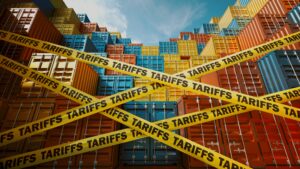The White House announced that Canada has officially dropped its plan to implement a digital services tax (DST) following strong pressure from U.S. President Donald Trump. This decision came just hours before the tax was set to take effect, signaling a significant diplomatic shift between the two countries.
According to the White House press secretary, Canadian Prime Minister Mark Carney personally called Trump the night before to inform him that Canada would withdraw the tax. The announcement was portrayed by the Trump administration as a clear victory for American technology companies and workers, who would have been impacted by the tax.
The proposed tax aimed to charge large digital platforms — primarily U.S.-based tech giants — for revenues generated in Canada. However, Trump responded swiftly by threatening to end all ongoing trade negotiations with Canada if the tax wasn’t scrapped.
This unexpected move from Trump seemed to pay off quickly. Within a day, Canada reversed course and announced the cancellation of the tax to ensure that broader trade discussions could continue. Negotiations between the two countries resumed soon after, and both leaders now aim to finalize a new trade agreement by July 21.
Trump’s top economic aide Kevin Hassett echoed the administration’s position, emphasizing that the U.S. would now pressure other nations to drop similar digital services taxes. He described Canada's decision as a strategic and positive step that avoided more complex retaliatory measures, such as counter-tariffs or legal battles.
Hassett also hinted that countries that continue to enforce digital services taxes might face strong responses from the U.S. Trade Representative, citing them as examples of unfair trade practices.
As the U.S. moves forward with other major economic policies, including a large tax-and-spending bill currently being considered by Congress, the Trump administration is eager to build a framework for multiple trade agreements. Hassett noted that, once the bill passes, a “marathon session” at the White House will take place, during which the administration will finalize tariff plans for multiple countries.
While Canada has backed away from the DST, the bigger picture suggests a more aggressive U.S. stance on digital taxation globally. As more nations explore similar tax models, Washington’s reaction to Canada could serve as a warning or reference point.
For now, Canada’s retreat has smoothed tensions with the U.S. and may help accelerate the completion of a new bilateral trade deal — at least until the next policy clash.





